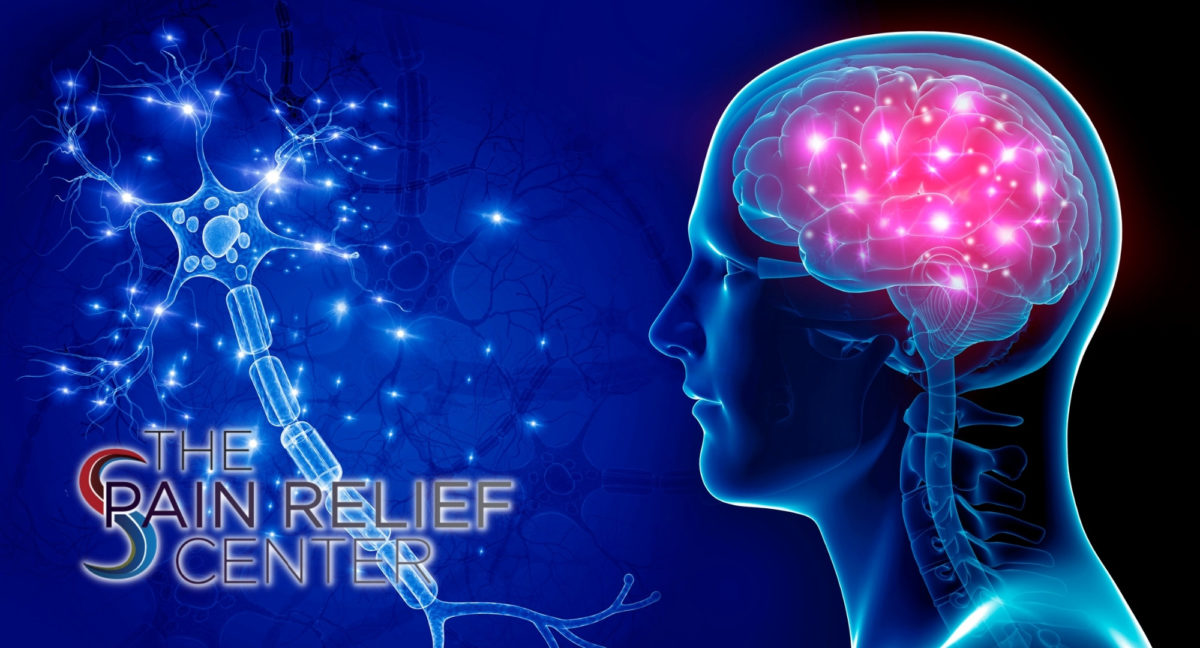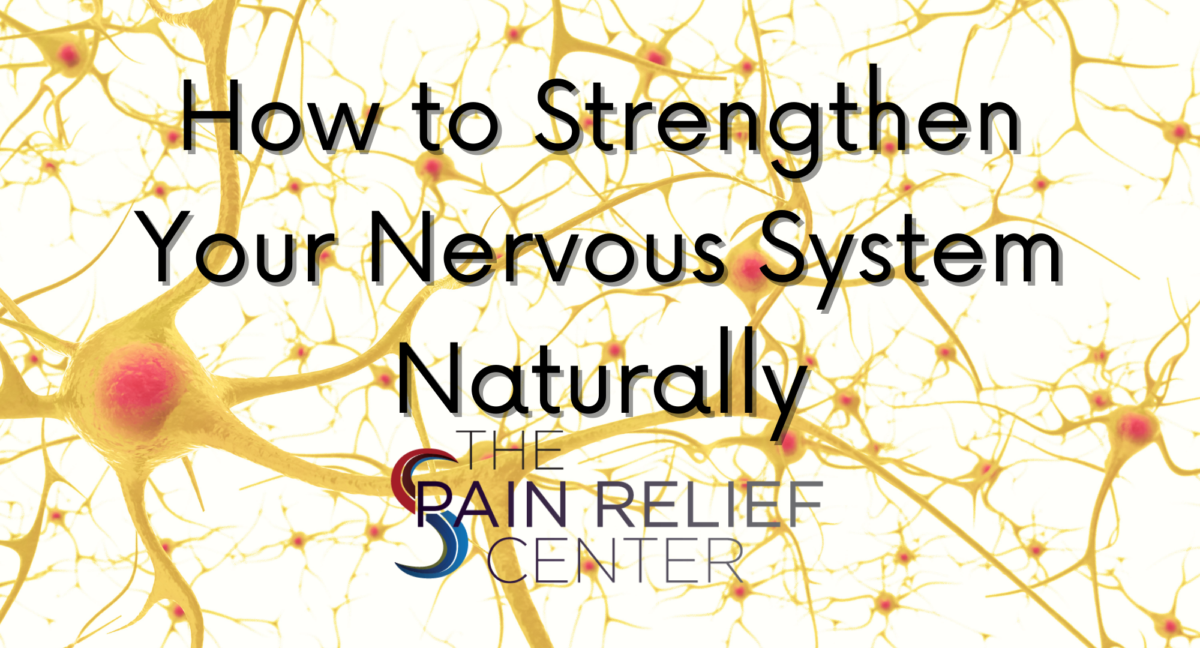How Does Your Nervous System Work?

The nervous system uses a specialized type of cell called neurons to do its job. These neurons send messages and signals all over the body. The electrical signals that they transmit travel between all parts of the body, including the skin, brain, glands, organs, and muscles.
Those messages allow you to move your limbs, feel different sensations, and much more. The parts of the body which correspond to the five senses (eyes, tongue, ears, nose, and skin) take in environmental information about your surroundings by using neurons. Then, those nerves and neurons carry that information to and from your brain.
There are different kinds of neurons that perform different functions and send different signals. Motor and sensory neurons are the two most notable. The motor neurons allow the muscles to move, while the sensory neurons take in outside stimuli and information. Other types of neurons are responsible for automatic bodily functions such as breathing, heart rate, food digestion, and even shivering. Below, we outline the different nervous systems within the human body.
Central Nervous System
The central nervous system consists of only two parts of the body, albeit very important ones: the brain and spinal cord. Our brains play a central role in virtually all bodily functions. However, certain reflexive movements occur without the participation of the brain, but rather through spinal cord pathways.
The spinal cord connects to the brainstem, which is where the cranial nerves exit. Then, the spinal cord carries messages and signals to the peripheral nerves, which leads to the rest of the body.
Peripheral Nervous System
The peripheral nervous system branches out from the brain and spinal cord, effectively acting as an intermediary between the central nervous system and the rest of the body parts. Further, it is divided into the somatic (voluntary) nervous system and the autonomic (involuntary) nervous system.
Autonomic or Involuntary Nervous System
The autonomic nervous system regulates the involuntary processes of the body, such as breathing, heart rate, blood flow, and blood pressure. It works continuously without your conscious effort. It also has two main divisions, which we list below.
- Sympathetic Nervous System: Generally, the sympathetic nervous system allows the body to prepare for emergencies or stressful situations. In other words, it triggers your fight or flight response.
- Parasympathetic Nervous System: In contrast, the parasympathetic division controls your body’s processes during normal situations. It conserves energy and restores tissues.
Somatic or Voluntary Nervous System
This is the other part of the peripheral nervous system. Its role is to begin and control your body’s movements. It allows you to perform voluntary actions, as well as process the sensory information that arrives through your sight, touch, and hearing.
How Can I Give My Nervous System a Break?
For a wide variety of reasons, life can be very stressful. When we experience this stress, our nervous system takes on the majority of the burden from it. In the same way that you need to drink water to replenish your body, you should try to give your nervous system a break every once in a while. The following are some simple ways you can give your nervous system a much-needed break.
- Adding weight: Whether it’s through lifting weights or relaxing under a weighted blanket, this weight gives the brain a proprioceptive input. This input produces a relaxing and organizational effect on your nervous system.
- Shake it out: Think of how a dog might shake their body out after a scary encounter with another dog. People can also benefit from shaking their bodies out, as it helps the nervous system to release built-up energy.
- Adding heat: Hot baths, warm hugs, and heating pads all have benefits. Added heat reduces inflammation in the body and helps regulate blood sugar.
- Make space: Sometimes the simplest answer is just taking a break. Try some activities with very little stimulation, such as meditation, yoga, crafting, listening to calm music, or even gardening.
How Can I Keep My Central Nervous System Healthy?

There are many different healthy habits you can practice to maintain a healthy nervous system. The following are some simple ways to improve your nervous system naturally.
- Eat foods high in proteins, vitamins, and minerals. Examples of these foods include dark chocolate, oranges, bananas, prunes, pomegranates, milk, green leafy vegetables, and eggs.
- Protect the myelin sheath with B vitamins. The myelin sheath protects the nerves, so eating foods rich in B vitamins and healthy fats can help stave off certain illnesses, such as Alzheimer’s disease.
- Use yoga and stretching to strengthen your nervous system. Stress produces cortisol, which can negatively affect the nervous system. Yoga helps decrease cortisol levels, which helps the nervous system.
- Practice wellness in multiple ways. Exercise, getting enough sleep, sunlight, meditation, walking barefoot, eating a balanced diet, drinking green tea, and eating leafy greens all lead to benefits for the body. Physical health and brain health are interconnected, so it’s important to remember to take care of yourself.
What Effect Does Exercise Have on the Nervous System?
Exercise has many known benefits for our health, including for our brain and nerves. We list some specific benefits below.
- Aids with both relaxation and sleep
- Lowers stress levels
- Helps stave off heart disease and other health conditions
- Provides external stimuli that boost your brain activity
How to Strengthen Nerves

Here are the top 10 ways to strengthen your nervous system naturally.
Deep Breathing: This is a simple yet effective technique to deal with a weak nervous system. It can help you relax and reduce stress.
Walking Barefoot: Walking barefoot on moist earth, soft grass or a sandy beach for about 30 minutes daily can greatly benefit your nervous system and overall health. When you walk barefoot, the Earth’s surface electrons transfer into your body, promoting physiological changes and improved health.
Sunlight: Exposure to sunlight helps regulate the nervous system by helping the body produce vitamin D. Expose your body to early morning sunlight without using any sunscreen for 10 to 15 minutes daily to boost your vitamin D levels. You can also get vitamin D from salmon, tuna, milk, eggs, and fortified breakfast cereals.
Yoga and Meditation: You can make yoga and meditation, a part of your daily routine to strengthen your nervous system. The combination of three elements of yoga, such as poses meditation and proper breathing practice helps strengthen the peripheral nervous system. Furthermore, yoga is good for elevating mood, reducing cortisol levels, boosting the immune system, and increasing overall physical and mental well-being. As it is essential to do yoga poses in a proper manner, learn the poses from an expert, and then practice them daily.
See Also: What Is Cortisol?
Magnesium: Magnesium is an important mineral for a healthy nervous system. The deficiency of this mineral has an inhibitory effect on several neurotransmitters that support signal transmission between nerve cells. Furthermore, it aids the body’s production of serotonin, which relaxes the nervous system and elevates mood. It even promotes muscle relaxation.
Omega-3 Fatty Acids: To reduce the risk of a weak nervous system, start eating foods rich in omega-3. Omega-3 fatty acids are important for the development and functioning of the central nervous system. These fatty acids are necessary for proper neuron functioning and improved nerve transmissions.
Exercise: Regular exercise is also important for strengthening the nervous system. Walking, running, jogging, swimming, and bicycling are some exercises that can be helpful in keeping the nervous system healthy. You can always talk to your doctor about exercises that will be right for you. One most physicians recommend are pull-ups. Pull-ups benefits cannot go unstated when patients want to strengthen their central nervous system.
Epsom Salt: An Epsom salt bath is also good for your nervous system. It helps muscles and nerves function properly. The magnesium in it also helps increase the mood-elevating serotonin in the brain, which reduces stress and promotes relaxation.
Green Tea: Green tea also has a positive impact on your nervous system. L-theanine, the amino acid in green tea, helps increase levels of dopamine and serotonin. This in turn improves mood and reduces stress. Furthermore, the caffeine in green tea helps increase alertness, focus, concentration, and thinking ability. Also, the antioxidants in it benefit the cardiovascular autonomic nervous system and reduce the risk of cancer, cardiovascular disease, diabetes, obesity, Alzheimer’s, and Parkinson’s disease.
Chamomile: Chamomile is a popular herb that can be used as a mild sedative to calm nerves and reduce anxiety. It can even treat hysteria, nightmares, insomnia, and other sleep problems.
Improving Nervous System Naturally
- Do not smoke or use other tobacco products.
- Get plenty of rest and sleep after a long, hectic day.
- Get blood sugar and high blood pressure under control.
- Drink plenty of water and other fluids, as dehydration is not good for the nervous system.
- Limit your intake of caffeinated as well as alcoholic drinks.
- End a bath with a few seconds of a cold shower to stimulate your nervous system. However, avoid the head region.
- Do not use non-prescribed medicines.
Diabetic Nerve Pain

What does diabetic nerve pain feel like? Diabetes is a chronic condition that comes with a variety of symptoms if it’s not managed. One of the most challenging symptoms for diabetics is diabetic peripheral neuropathy.
Neuropathy
Neuropathy is an over-arching term that essentially means nerve pain. The four types of neuropathy include:
- Peripheral neuropathy
- Autonomic neuropathy
- Radiculoplexus neuropathy
- Mononeuropathy
See Also: Peripheral Nerve Stimulation
What Is the Best Home Remedy for Neuropathy?
Damage to the peripheral nerves from various health conditions can be extremely painful. Therefore, many people who suffer from neuropathy wish to either provide themselves with self care at home or supplement their medical treatment with at-home care. The following are some of the best ways to relieve pain from neuropathy naturally.
- Vitamin B and Vitamin D supplements, with approval from your doctor.
- Capsaicin, which is found in hot peppers. It can be used in a topical application to reduce pain.
- Stop smoking tobacco. This hinders your blood circulation.
- Take a warm bath with a couple of minutes of cold water at the end.
- Exercise regularly to improve your overall health.
- Use certain essential oils, such as evening primrose oil, frankincense essential oil, peppermint oil, tea tree oil, and more.
- Meditate on a regular basis. It helps to lower levels of stress and improve the quality of your sleep.
- Acupuncture also promotes healing by stimulation of the pressure points.
See Also: Natural Remedies for Body Pain and Get Rid of Pain Naturally
Causes of Nerve Pain
There are many conditions that can result in nerve pain in your extremities, including:
- Vitamin deficiencies
- Alcoholism
- Autoimmune diseases
- Medications
However, the most common cause of peripheral neuropathy is poorly controlled diabetes.
The tell-tale sign of diabetes is a nearly constant fluctuation of the blood sugar-with high spikes and cavernous lows. This fluctuation causes damages to the capillary walls responsible for delivering blood to the nerves. This occurs more often at your hands and feet. As the nerves become more damaged, diabetic neuropathy symptoms begin to appear.
See Also: Causes of Nerve Pain
FAQs About How to Strengthen the Nervous System Naturally
Vitamin B12 provides energy for the nerves in order for them to function. It also regenerates the nerves and protects them from damage. Vitamin B6, however, relieves pain in the nerves and allows them to properly transmit messages. Deficiencies in these vitamins can contribute to nerve pain.
It is entirely possible for your central nervous system to become fatigued, especially in athletes who train on a regular basis. Training with high intensity too frequently or introducing high-intensity workouts too early into your training regimen can cause nervous system fatigue. For athletes at a higher level, they may require 48 hours to fully recover from CNS fatigue. Therefore, getting enough rest and sleep is essential for proper recovery.
For neuropathy, cold is generally not as soothing as heat. It does, however, offer a mild numbing effect for any pain you may experience. Using ice can also help reduce inflammation. Both heat and ice have their benefits, and switching between the two based on need is a good idea.
Symptoms of a weakened nervous system include the following.
- Headaches
- Loss of muscle strength
- Memory loss
- Migraine headaches
- Tingling sensations or numbness
- Back pain
- Rigid muscles
- Seizures or tremors
Having a balanced food intake is essential for every single bodily function. Healthy eating leads to healthy cells and a reduced risk of certain conditions such as heart failure. It’s important to get an adequate amount of all essential nutrients, even if you must take supplements in order to do so. The following are some excellent foods that have high levels of magnesium and other vitamins and minerals.
- Lentils
- Spinach
- Almonds
- Bananas
- Peas
- Seeds
- Brown rice
- Walnuts
- Pumpkin
Dallas Nerve Pain Treatment
If you’re suffering from chronic nerve pain, we offer a variety of treatment options in our Plano treatment center. The Pain Relief Center in Dallas is here to help those who struggle to either manage their pain or create a balanced lifestyle. Our top-rated Wellness Center in Plano focuses on a holistic approach to medicine, offering a wide array of natural remedies for pain. Help us help you by contacting our Dallas pain clinic today. Call 214-709-1904 or fill out our online intake form to schedule an appointment today.


